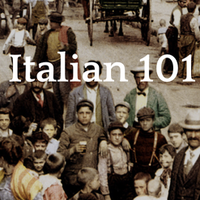1.1 Mini Story - Il portafoglio
Mini|||portefeuille
Mini|story|the|wallet
Mini|Geschichte||Portemonnaie
ミニ|物語||財布
Mini|Historia|El|la billetera
1.1 Mini-Story - Das Portfolio
1.1 Μίνι ιστορία - Το χαρτοφυλάκιο
1.1 Mini Story - The wallet
1.1 Minicuento - La cartera
1.1 Mini histoire - Le portefeuille
1.1 ミニストーリー - ポートフォリオ
1.1 Miniverhaal - De portfolio
1.1 Mini historia - Portfolio
1.1 Mini História - A Carteira
1.1 Міні-історія - Портфоліо
Il portafoglio
|le portefeuille
the|wallet
|Die Geldbörse
Der Geldbeutel
the wallet
le porte-feuille
lommeboken
portfel
a carteira
Cüzdan
C'è una ragazza.
there is|a|girl
Da ist ein Mädchen.
There is a girl.
Hay una chica.
Il y a une fille.
Det er en jente.
Há uma menina.
Bir kız var.
Si chiama Janet.
||Janet
herself|her name|Janet
||Janet
||ジャネット
His name is Janet.
Elle s'appelle Janet.
O nome dela é Janet.
Adı Janet.
Janet è statunitense.
||américaine
Janet|she is|American
||amerikanisch
||アメリカ人
Janet kommt aus den USA.
Janet is from the United States.
Janet er fra USA.
Janet é dos Estados Unidos.
Janet, Amerika Birleşik Devletleri'nden.
Janet è triste perché non ha il libro di italiano.
Janet|she is|sad|because|not|she has||book|of|Italian
ジャネット||悲しい|||||||
Janet||triste|porque|no|tiene|el|libro|de|italiano
Janet ist traurig, weil sie kein italienisches Buch hat.
Janet is sad because she doesn't have an Italian book.
Janet est triste parce qu'elle n'a pas de livre italien.
Janet er lei seg fordi hun ikke har en italiensk bok.
Janet está triste porque não tem um livro italiano.
Janet üzgün çünkü İtalyanca kitabı yok.
Janet è in classe e aspetta la lezione.
|||||attend||
Janet|she is|in|class||she waits|the|lesson
ジャネット|||||待っている||
Janet|está||clase|y|espera|la|la clase
Janet ist im Klassenzimmer und wartet auf den Unterricht.
Janet is in the classroom waiting for the lesson.
Janet est dans la classe et attend le cours.
Janet er i klasserommet og venter på leksjonen.
Janet está na sala de aula esperando a aula.
Janet sınıfta dersi bekliyor.
Ma non ha il libro di testo perché ha perso il portafoglio.
|||||||parce que||perdu||
||||||Lehrbuch|||verloren||Portemonnaie
but|not|she has||book|of|text|because|he has|lost||wallet
||||||教科書|||||財布
Aber er hat das Lehrbuch nicht, weil er seine Brieftasche verloren hat.
But he doesn't have the textbook because he lost his wallet.
Mais il n'a pas le manuel parce qu'il a perdu son portefeuille.
Men han har ikke læreboka fordi han mistet lommeboken.
Mas ele não tem o livro porque perdeu a carteira.
Ama cüzdanını kaybettiği için ders kitabına sahip değil.
C'è un ragazzo.
there is|a|boy
Da ist ein Junge.
There is a boy.
Det er en gutt.
Existe um menino.
Bir çocuk var.
Si chiama Paulo Emilio.
||Paulo|Emilio
|his name is|Paulo|Emilio
||パウロ|エミリオ
His name is Paulo Emilio.
Paulo Emilio è brasiliano.
|||Brasilianer
Paulo||he is|Brazilian
|||ブラジル人
Paulo Emilio is Brazilian.
Paulo Emilio Brezilyalı'dır.
Emilio è vicino a Janet.
Emilio||near||Janet
Emilio steht Janet nahe.
Emilio is close to Janet.
Emilio est proche de Janet.
Emilio er nær Janet.
Emilio está perto de Janet.
Emilio, Janet'e yakın.
Emilio ha il libro.
Emilio|he has||
Emilio hat das Buch.
Emilio has the book.
O Emílio tem o livro.
Emilio dà il libro a Janet.
|gibt||||
Emilio|gives|||to|
Emilio gibt Janet das Buch.
Emilio gives the book to Janet.
Emilio donne le livre à Janet.
Emilio kitabı Janet'e verir.
Janet è felice.
||heureuse
|she is|happy
Janet is happy.
Janet mutlu.
Janet e Paulo Emilio adesso sono amici.
Janet||Paulo|Emilio|maintenant||
|||Emilio|now|they are|friends
Janet und Paulo Emilio sind jetzt Freunde.
Janet and Paulo Emilio are now friends.
Janet e Paulo Emilio agora são amigos.
Janet ve Paulo Emilio artık arkadaşlar.
C'è una ragazza.
||fille
there is||girl
||女の子
Da ist ein Mädchen.
There is a girl.
Il y a une fille.
Há uma menina.
Si chiama Ingrid.
||Ingrid
|her name is|Ingrid
||Ingrid
|名前は|イングリッド
Her name is Ingrid.
Ingrid va a lezione e trova un portafoglio.
|||||||Geldbörse
Ingrid|she goes|to|lesson|and|she finds|a|wallet
イングリッド|||||||
Ingrid geht zum Unterricht und findet eine Brieftasche.
Ingrid goes to class and finds a wallet.
Ingrid va en classe et trouve un portefeuille.
Ingrid vai para a aula e encontra uma carteira.
Ingrid dà a Janet il suo portafoglio.
||||||Portemonnaie
Ingrid|she gives|to||the|her|wallet
イングリッド|あげる|||||財布
Ingrid gibt Janet ihre Brieftasche.
Ingrid gives Janet her wallet.
Ingrid dá a carteira a Janet.
Janet è molto felice.
||very|happy
ジャネット|||
Janet is very happy.

